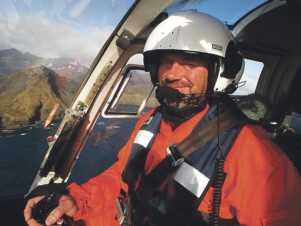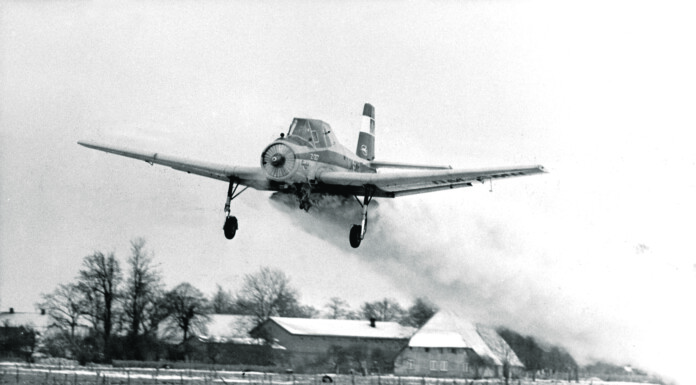Despite economic pressures challenging aviation operators across the country, NZ Agricultural Aviation Association [NZAAA] executive officer Tony Michelle reckons they are up for the challenge.
Data released by NZAAA shows that, in the year ending December 2022, a total of 637,000 tonnes of agricultural product was dispensed onto New Zealand farmland, compared to 714,000 tonnes in the previous year [an 11 per cent decrease].
In the first six months of this year, the amount of chemical and fertiliser dispensed by aviation has seen a further 10 per cent drop compared to the same period last year.
For the first six months of this year, agricultural fixed-wing planes and helicopters flew a combined total of 33,051 hours, whereas 45,300 hours were flown during the same period in 2022 and 2021 [a 27 per cent decrease].
According to Michelle, the significant decrease in topdressing activities is due to economic pressures, including rising inflation, cost pressures on the primary sector, and the impacts of environmental regulations during the second half of 2022 and the first half of 2023.
Most New Zealand farmland spraying is done via helicopter, while solid products are dispensed by fixed-wing aircraft, although on flat farmland fertiliser is more commonly spread by truck.
“Yes, we are facing some headwinds,” Michelle said.

“However, our industry has faced many challenges in the past. We are an adaptive industry entering an exciting age of innovation and technology that will continue to provide a platform to deliver for our clients and stakeholders.”
Following this year’s severe weather events, aerial operators dotted across the East Coast of the North Island have taken a hit.
“We are particularly proud of the response by our operators and their staff to provide relief capability to isolated communities, both fixed-wing and helicopters alike”, Michelle said.
“The value of highly skilled pilots with an intimate knowledge of local areas, airstrips, and the people in these communities have come to the fore.”
Michelle acknowledges that the ever-changing demands of consumers, technology development, and environmental regulations will help pick up the threads for the aerial application sector again.
“Topdressing operators have moved to accommodate a market shift to lighter fertiliser applications and the rapidly growing interest in aerial lime applications coupled with innovations such as variable rate technologies, while maintaining high levels of operational safety,” Michelle said.
“Topdressing companies are also actively being looked to by farmers looking to minimise the on-farm risks associated with ground-based applications.”



Environmental issues really 😑 😕 we need to eat to survive. Do the environmentalists not have family 🤔 or want children 🤔. A human life and the right to live is reality in a democracy.